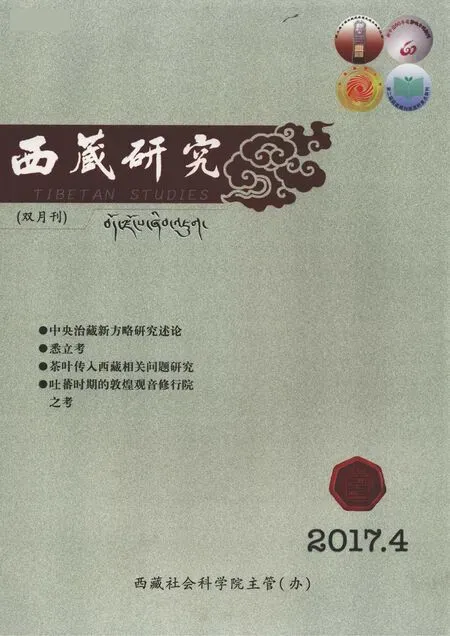“我们与他们”
——热贡“蔡孜德裕”之《格萨尔》文化与族群边界探析
周毛先(西北民族大学《格萨尔》研究院,甘肃 兰州 730030)
2017-06-12
本文受中央高校基本科研业务专项资金项目“多民族《格萨尔》学科建设”(项目编号:31920170133)资助;本文系2017年度国家社科基金项目《汉藏边缘之“霍尔”人的《格萨尔》信仰与多元宗教对话共生研究》(项目编号:17XMZ073)阶段性成果、2017年度甘肃省高校科研项目“甘肃白龙江流域新发掘的苯教《格萨尔》祭祀仪轨文献整理与研究”(项目编号:2017B-76)阶段性成果。
周毛先(1979—),女,藏族,青海热贡人,藏学博士、副教授,主要从事藏族文化研究。
“我们与他们”
——热贡“蔡孜德裕”之《格萨尔》文化与族群边界探析
周毛先
(西北民族大学《格萨尔》研究院,甘肃 兰州 730030)
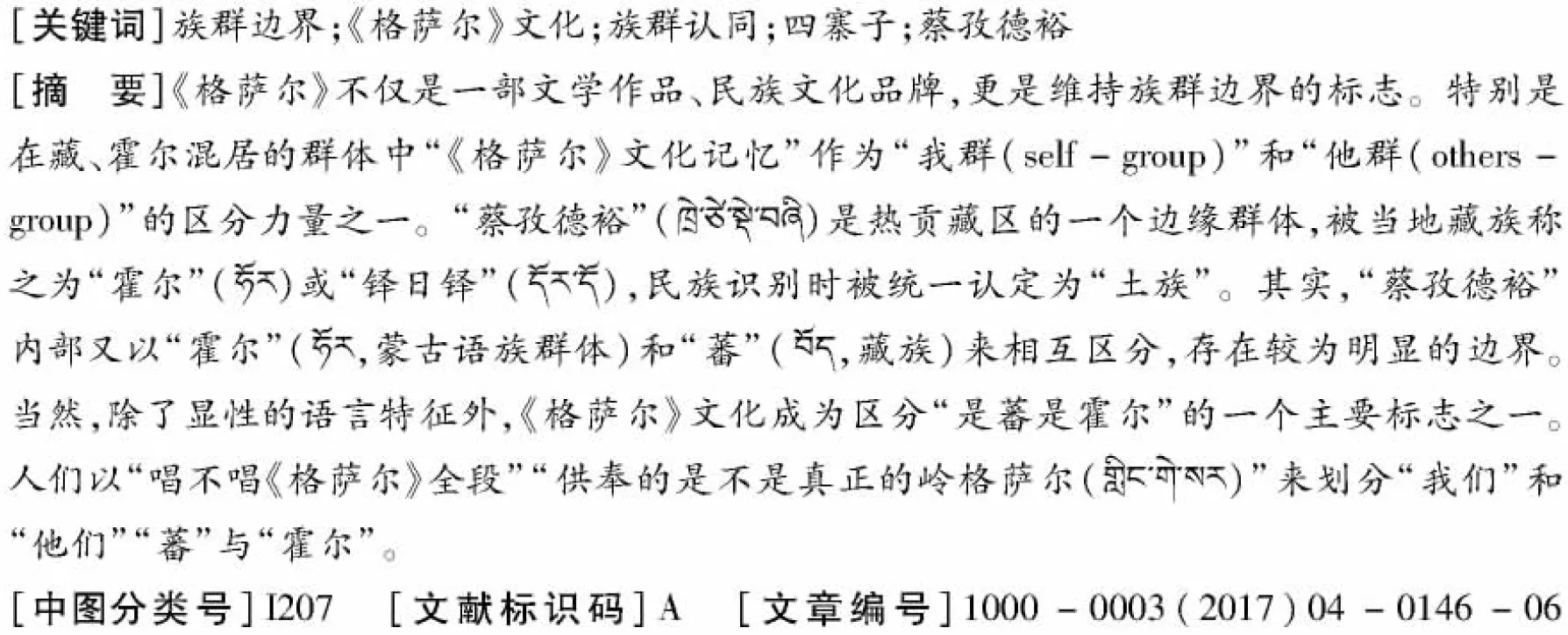
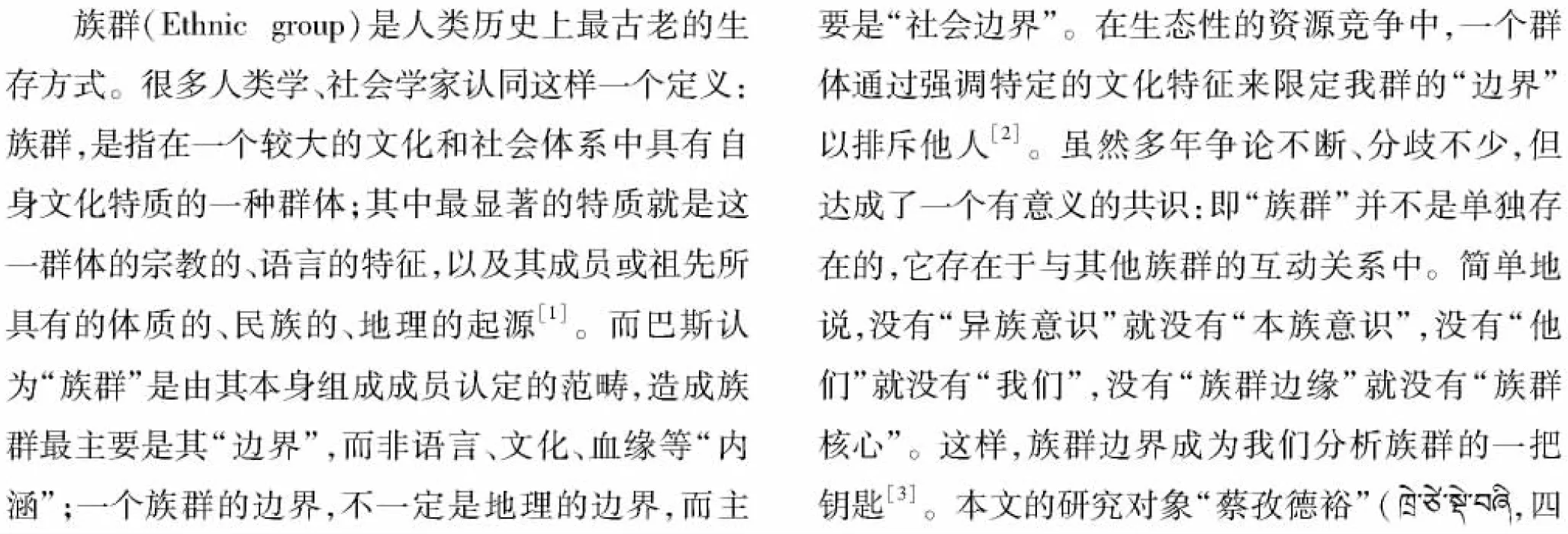
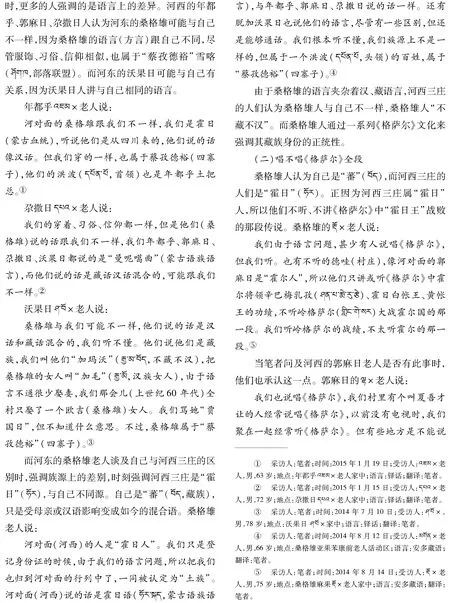

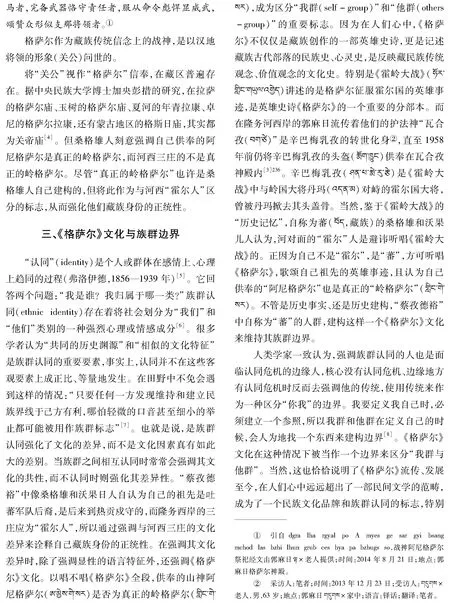
是在藏、霍尔混居的群体中起着赖以凝聚的一个核心力量,能够作为“我群”和“他群”的区分力量。
[1]周大鸣.论族群与族群关系[J].广西民族学院学报,2001(2).
[2][挪威]弗雷德里克·巴斯.族群与边界:文化差异下的社会组织[M].李丽琴,译.北京:商务印书馆.2014:11.
[3]角巴东主.格萨尔遗迹传说(藏文)[M].西宁:青海民族出版社.1989.
[4]加央平措.关帝信仰在藏传佛教文化圈演化成格萨尔崇拜的文化现象解析[D].北京:中央民族大学博士研究生论文,2010.
[5]车文博.弗洛伊德主义原著选辑[M].沈阳:辽宁人民出版社.1988:375.
[6]庄孔韶.人类学概论[M].北京:中国人民大学出版社.2006:312.
[7]马启成,白振声.民族学与民族文化发展研究[M].北京:中国社会科学出版社,1995:102、104.
[8]徐新建,王明珂,等.饮食文化与族群边界:关于饮食人类学的对话[J].广西民族学院学报,2005(6).
“WeandThey”:OnGesarCultureandEthnicBorderofRebgongKhre-tseSde-bzhi
VbrugMoByams
(InstituteofGesarStudy,NorthwestMinzuUniversity,Lanzhou,Gansu730030,China)
Ethnic Border;Gesar Culture;Ethnic Identity;Four Villages;Khre-tseSde-bzhi
Absrtact:The Gesar epic is not only a literary work and cultural brand,but also a symbol of maintaining ethnic boundaries.In particular,among the mixed habitat of Tibetan and Hor communities,the Gesar cultural memory is one of the distinguishing forces of self-group and other-group.Khre-tseSde-bzhi(the four villages) is a marginal group inRebgongTibetan region,and it is calledDor-doorHorbylocal Tibetans.Ethnic identity is recognized as Tu locally.In fact,withinKhre-tseSde-bzhi,they distinguish and repel each other byHorandBod,and there is a clear ethnic boundary.In addition to the dominant linguistic features,the Gesar culture becomes one of the main symbols of the distinction between theBodandHoror self-group and other-group.TheBodand Hor are divided by the way of singing Gesar epic.
[责任编辑:塔措]
[责任校对:刘乃秀]

